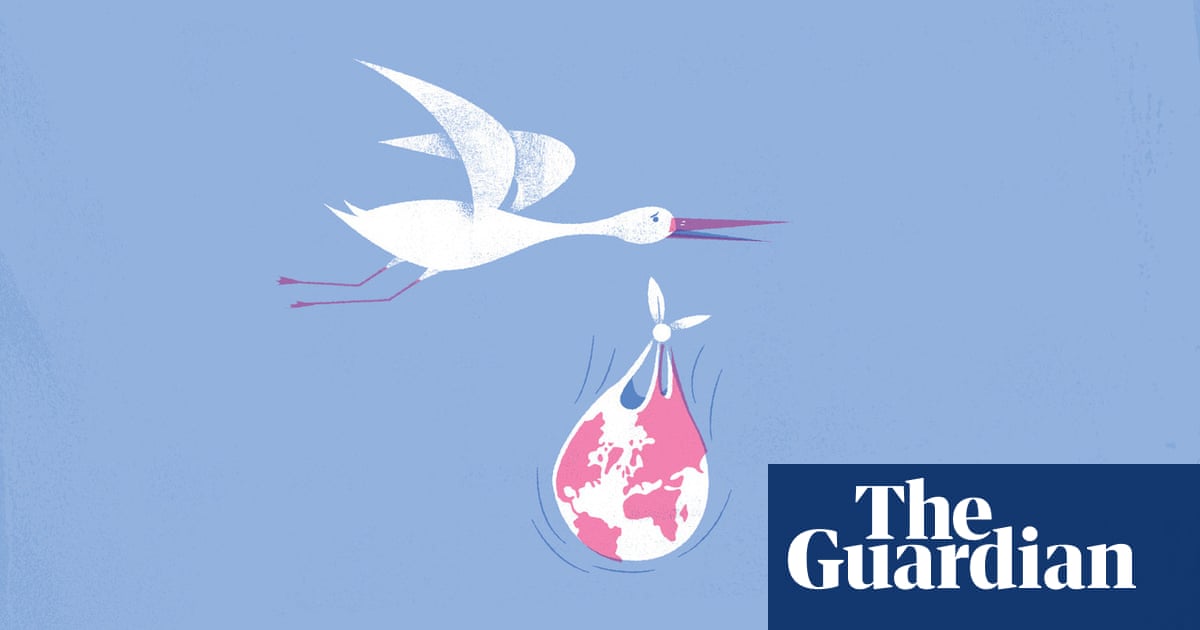- cross-posted to:
- world@lemmy.world
- collapse@slrpnk.net
- collapse@lemm.ee
- cross-posted to:
- world@lemmy.world
- collapse@slrpnk.net
- collapse@lemm.ee
Tax the fucking rich. People aren’t having kids for two reasons: education and lack of money. Oh, make it 3 (as said in the article): no future.
The baby bonuses are hilariously low! Some of them are just 2-3k€ as a one time payment for having a kid. Kids can cost 100k€ until they leave the house. How is a one time payment going to finance that? And subsidised childcare, while nice, ain’t going to pay for an apartment or house big enough to have the kids. Parental leave is also just a weeks or months tops. Those are just alibi measures to say “we did something”, while not addressing shit.
And of course, stop poisoning the entire damn planet and vote for parties that don’t want that. Who wants to bring a child on a dying planet? Tax the rich and invest in people, not corporations.
Taxing the rich isn’t going to lower our cost of living, the changes needed are far more systemic. Taxes don’t decide whether the government can afford to do something outside of the local level. To solve that problem, you need to remove them from power and ensure they cannot take it back.
If you want a quick bandage for the problem without addressing that last point, you’re better off implementing fixed, affordable prices for necessities such as food, housing, utilities, healthcare, etc. so they can’t be used to price gouge.
This is obviously not sufficient by itself to address all of the problems and it’s almost certain it would never be widely implemented by the government of a liberal democracy. Cutting into corporate profits is unacceptable.
Until people realize that they must forcibly take back the power to define how their countries are run (not necessarily violently, but let’s be honest, those in power don’t even respond to peaceful protests without violence) and then begin to take actions that actually weaken those in charge, we will continue to live under their thumb and suffer the treatment they deem most beneficial to themselves.
One step that can be taken to weaken them is to organize your community to create alternatives to the institutional programs they expect you to rely upon. Develop programs similar to the breakfast programs of the Black Panthers. Organize your workplaces and local communities into workplace unions (not business unions!) and tenant unions organized, run, and composed of the members who will be covered. Force them to negotiate with you and be ruthless at the negotiation table.
Show the people that they DO have power and from there you can begin to build a movement to take it back.
We made everyone work 2 jobs and got rid of every social support system and places for children to exist without being run over or yelled at while doing our best to ensure everyone is as stressed as possible… why does no one want to have kids?
When will they stop seeing this as a problem that needs to be solved, rather than a solution a number of problems we’re currently experiencing?
I think depopulation is the best answer to global warming, but it has serious issues for economies.
Fewer births translates into an aging population. Now you have fewer young people doing the business of the nation and more old people requiring support.
To put the icing on top, now the tax base is shrunken. So how do we support the elderly? Hell, how to we provide any social safety nets?
Taxing the wealthy is a huge part of the solution, but it’s not the panacea many on here make it out to be. Fortunes rise and fall, not a stable thing to base economic policy on, that requires a predictable tax base. We still need workers, and many jobs are “youth only”. How many old garbage men do you see?
Depopulation through declining birthrates seems a lot better for economies than depopulation through massive drought, famines and pestilence brought on through climate change.
I think depopulation is the best answer to global warming, but it has serious issues for
economiesrich people.Depopulation, demolish all asphalt shit and eliminate polluting factories and you’d have climate change fixed by dinner time
Because it’s not a solution? Less people means the percentage of people thinking “well, I polluted for 1 person, but there’s 1 person less so now I can pollute for two!”.
largely to no avail
Great news. It’s insane how few people seem to care about the damage occurring from overpopulation.
But the economy! It won’t survive without neverending growth.
“Overpopulation” is bunk. We have the resources to sustain 8 billion people, (or more, really) just not 8 billion Americans. But when people say there’s too many people, it’s usually a eugenicist argument that really means “there’s too many people in those poor countries.”
I hear eugenists say “there’s not enough people” in place of “we need more specially white folk so the uneducated colored don’t replace us” far far more often, see Elon musk and the like.
I’ve actually only ever heard “there’s too many people” come from anti capitalists.
Nonsense. That’s an extremely ignorant statement. The current population level has been doing massive damage to our planet. https://github.com/MaximilianKohler/Archive/wiki#some-of-the-major-problems
Your entire argument is climate change? You do know climate change is not a root problem, it is a symptom right? Kill capitalism and you save the planet.
Also, you’re just proving my point. The vast majority of ecological destruction and GHG emissions come from the top 10% of the population in terms of wealth. In other words, most Americans, Canadians, Australians, and Europeans - capitalist countries. If we the 10-15% stopped living such excessively lavish lives, the planet could sustain us all.
Your entire argument is climate change?
No, it’s not. You should click the link.
I did
Then you may be allowing preconceptions and biases to prevent you from processing new and contradictory information.
Well I can tell you that none of those things are being deployed in the USA.
yeah our government shut down abortion rights and is trying to make contraception and divorce illegal. that’s the way we’re “fixing” it here.
Not true at all.
Pretty sure the actual solution to this one is going to be increasing automation leading to reduced working hours and thus more time. Some economic reform will also be necessary at some point.
Let’s be real though, every other animal experiences population fluctuations due to environmental pressures. We probably can’t be the only exception to that, where we only ever grow or remain steady, that’s just not practical. If the economy requires it, then the economy is what will have to change at some point, by necessity.
Some economic reform will also be necessary at some point.
Are you thinking something like !ubi@leminal.space?
Eventually, yeah, probably. Also going to need to reverse some of the privatization we’ve allowed in the past decades. Corporate-owned dystopia where money runs 100% of all things is not particularly conducive to child rearing.
Until I trust my government to not go hard right, until I can own my housing wherever I want to live in a given decade, until work goes/stays full remote and/or reduces total working hours, until I feel like I have too much money that I could lose the cost of a child and not risk being in the danger zone - until then kids aren’t something I can guarantee a good life and that’s not an acceptable starting place for me.
None of these policies address that life is too expensive and difficult for people now for them to think about having kids…telling struggling people things will only get half as worse once they have children isn’t motivating anybody.
- They do address
- This not the cause anyway.
What’s the cause then according to you?
To be frank, I don’t know. I just think we are in a situation where we can rule out some of the possibilities by making comparisons between earlier societies and today, as well as different countries. For example, if we assume that bad living conditions are the root cause, then we have the problem that in earlier societies with much less wealth, that has been more demanding for the average person, people tended to have more children. In addition, we see that people in quite poor countries have a lot of children. You could save the assumption by adding a hypothesis like “if people know that life could be better but cannot achieve that better life, they are less likely to have children”. While this might work, we must note that inequality was even worse in earlier societies. The difference between a peasant and a member of the nobility may have been much greater than the inequality we see today (within most socienties). Maybe the peasant wasn’t aware of it, or whatever.
Anyway, you need a more complex theory in this case.
Maybe there are reasons other than economic ones that the choice to not bring another life into this capitalist hellscape is made?
capitalist hellscape
It’s hilarious seeing Elon Musk taking up the issue of plummeting birth rates, while simultaneously saying people who work for him who won’t commit to giving their life to his companies and sleeping in the office are lazy losers.
capitalist hellscape
Doesn’t exist. In fact, the people in the capitalist countries life far better lifes than those poor individuals in communistic ones. And additional, countries with large social-security-system like Germany or France has the same problem, even greater ones.
Respectfully, you are delusional.
Respectfully, you are delusional.
Sorry, but your are just, bold wrong. The so called “capitalist world” has by far the greates wealth and possibilities than any other area of the world. And perhaps that partly caused the drop of birthrates world wide.
The idea that bad conditions let birth rates drop is straight up false. The idea will be disproved by the fact that some of the most poor regions of the world have still high birth rates.
Maybe, the problem is far more sophisticated and all, but many things around there are wishful thinking.
My argument is that the shift from agrarian to industrial economy is the primary cause. It triggered all the things often cited in these articles, such as education and the cost of having babies. I would argue, that those are only secondary factors affecting birth rates, but not the initial trigger.
Oh cool. Forgot have a futurology.today instance.
Sabine Hossenfelder also did a video on that, today: https://youtube.com/watch?v=bm_BGGDurd0
Don’t think so. Every country in this world wants to increase the rates again.
Idiocracy 👀










